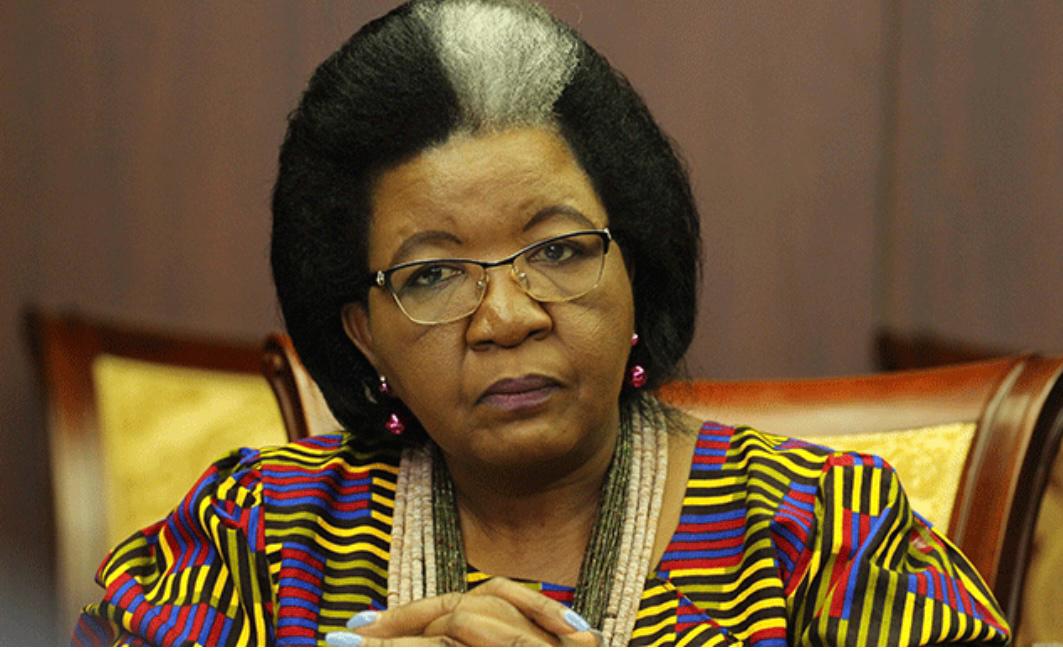Swapo secretary general Sophia Shaningwa says Independent Patriots for Change (IPC) leader Panduleni Itula’s court challenge of Namibia’s 2024 presidential election is confused, inconsistent and not based on true facts.
In a sworn statement filed at the Supreme Court on Thursday, Shaningwa slams Itula’s claim that the presidential election and its outcome were “replete with grave illegalities of the worst kind”.
Shaningwa states in her affidavit: “With respect, his statements are a perfect oasis of confusion, inconsistencies and an overdose of ambiguity. He cannot obtain an order on the basis of such statements.”
The IPC and Itula on 23 December filed two court cases in which they are asking that the results of Namibia’s presidential and National Assembly elections near the end of November be declared invalid and set aside.
Itula is asking the Supreme Court to set aside the result of the presidential election, which was won by Swapo candidate Netumbo Nandi-Ndaitwah with 58% of votes counted, and to order that a new presidential election be held.
The IPC is asking the Electoral Court to set aside the result of the National Assembly election, in which Swapo won 51 of the 96 elected seats in the assembly and the IPC won 20 seats.
Itula and his party are further asking the courts to declare that the proclamation in which voting in Windhoek and in some constituencies in the Kunene, Oshana and Oshikoto constituencies was extended for two days violated the Constitution and a part of the Electoral Act.
Claims made by Itula in an affidavit filed at the Supreme Court include an allegation that people who were not entitled to vote were allowed to cast ballots in the presidential election.
Shaningwa is denying that allegation, which she says is not backed by evidence.
Itula is also alleging that president Nangolo Mbumba’s extension of voting in some constituencies on 29 and 30 November contravened parts of the Electoral Act and the Constitution, and those two days of continued voting did not facilitate broad public participation in the elections.
In affidavits filed at the Supreme Court and also the Electoral Court, Shaningwa says the law allowed Mbumba to amend the proclamation in which he announced 27 November as election day, to allow two extra days of voting in constituencies where a shortage of ballot papers had been reported.
Shaningwa accuses the IPC of having gone on “a fishing expedition” to find evidence of “non-existent irregularities” in the elections.
In terms of the Electoral Act, party agents at polling stations may record complaints about the conduct of an election in an occurrence book at a polling station, Shaningwa notes in her statements.
The IPC and Itula did not provide any evidence of such complaints recorded at polling stations, Shaningwa says.
She also accuses Itula and IPC national general secretary Christine !Auchamus of making false statements in their affidavits, in which they said !Auchamus was present during an inspection of election material at the Electoral Commission of Namibia’s head office in Windhoek on 18 and 19 December.
According to Shaningwa, !Auchamus was not present at the inspection, and claims by her that she has personal knowledge of evidence obtained at the inspection are false, with the result that the courts should disregard the allegations she made.
Shaningwa is also saying the IPC and Itula should have cited returning officers involved in the elections and candidates who were employed in the public service before they were elected as members of the National Assembly as respondents in their court challenges.
The two courts should dismiss the IPC’s and Itula’s applications because they failed to include all affected parties as respondents in the matters, Shaningwa says.
She notes that public servants declared elected as members of the National Assembly are deemed to have resigned from the public service when the election results were announced on 3 December.
“I know for a fact that there are a number of such duly elected members of the National Assembly among the 51 names of elected members of the National Assembly on the Swapo Party list. I name a few, i.e. Willem Amutenya, Elijah Ngurare, Sharonice Busch, etc. Such members are personally and individually affected. They would, therefore, be substantially and directly affected by the orders sought by IPC,” Shaningwa says.
She also questions what will happen to the affected individuals if the National Assembly election is declared invalid: “What happens to them if the whole conduct of the elections is invalidated in circumstances where they were deemed to have resigned on the date of announcement of election results, and in some cases their positions may since have been occupied by other persons?”
Shaningwa also states: “It is these elected members […] who, I contend, have a material, direct and substantial interest in the orders sought. They were not cited by IPC as parties. Failure to join and cite them as parties is fatal to the application.”
On Itula’s challenge of the outcome of the presidential election, Shaningwa says: “Itula was required to provide reasons and facts for his grievance. In that way, he would have been required to disclose clearly and specifically the nature of the grievance he has, the reason for [the] grievance, and the material facts on the basis of which he alleges the grievance. It is only if he has done so that he would have properly pleaded his case. He did not.”
Stay informed with The Namibian – your source for credible journalism. Get in-depth reporting and opinions for
only N$85 a month. Invest in journalism, invest in democracy –
Subscribe Now!










